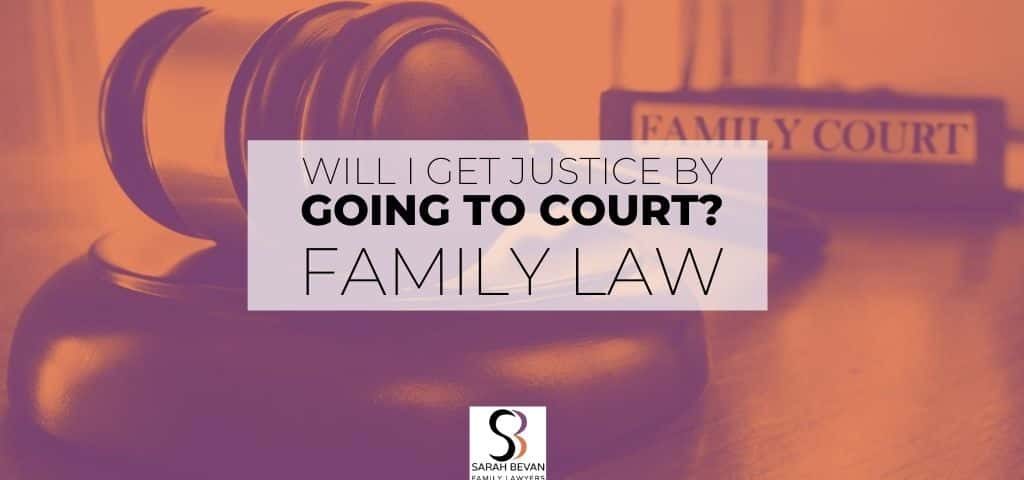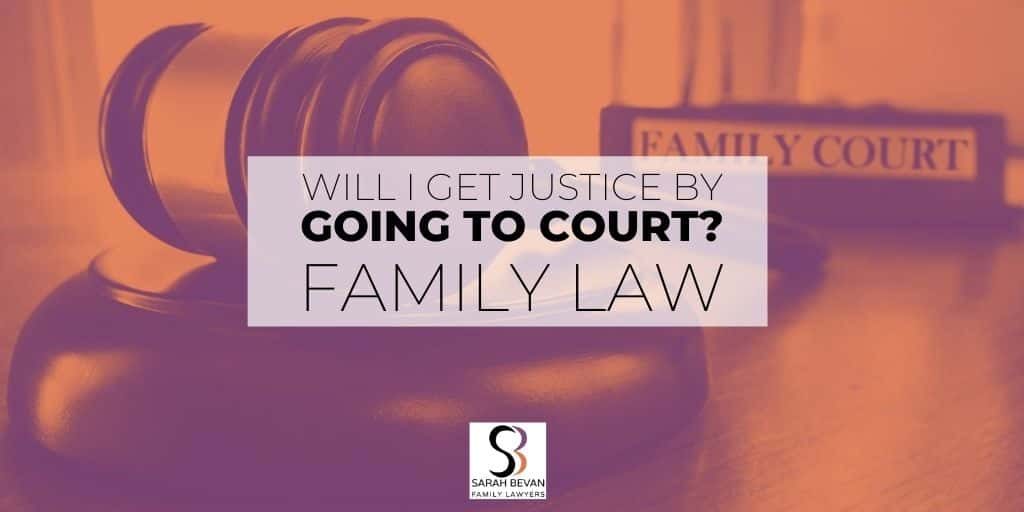- Sydney Family Lawyers
- (02) 9633 1088
- mail@sbfamilylawyers.com.au
Will I get justice by going to Court?
Family law disputes can involve a number of different issues. These include disputes about parenting arrangements, property settlement, spousal maintenance payments and child support payments. The vast majority of disputes are able to be resolved without needing to go to Court, including for many people who tell us that there is no way their ex will ever resolve anything. But there will always be some disputes that simply cannot be resolved, and people have to consider Court as an option to get the dispute finalised.
A question we are often asked is “Will there be justice if I take my case to court?” Our answer is unfortunately quite blunt – you go to court to get your dispute finalised, or to get a decision, not to get justice. Justice is a very subjective concept, and the Court process can be very long, with a number of ups and downs.
There are both advantages and disadvantages in taking a family law dispute to Court.
Advantages of going to court
For some people, there is no alternative left but Court, but for others, there might be some advantages of court proceedings, including:
1. Orders made by the court are binding and enforceable. This means that if someone does not comply with a court order, you are in a position to seek assistance from the court in enforcing the order. Enforceability provides certainty and finality for parties and can often even encourage compliance with orders. Having the security of enforceable court orders can definitely result in justice being achieved. However, remember that you can also get Court orders by agreement without needing to go to Court.
2. If a Judge makes a final decision about a case, the parties are able to move on from the dispute and obtain closure. Depending on the outcome of the case, this could mean justice has been achieved for one or both parties.
3. The court has access to a significant number of powers and resources which it can offer parties to assist with progressing their case to a resolution. Resources include experts who can write reports to assist with parenting disputes and professionals who can facilitate property mediations. The cost of accessing these experts and professionals is free.
4. There are various disclosure and discovery methods that are only available through court such as issuing of subpoenas.
5. If all avenues outside of court have been explored to try and settle a family law dispute, and it appears those options are not suitable, then the family law court process will result in a final outcome for parties.
6. If there are genuinely urgent circumstances in a case that need urgent court orders, then a court will be able to assist in dealing with the case.
Disadvantages of going to court
It is important to consider the disadvantages of taking your case to court, including:
a. The family law courts are notoriously busy and there are often significant delays for parties once their case has entered the court system. If a case is delayed as a result of unavailability in the court diary, then this could result in a lack of justice being achieved in a person’s family law case.
b. Going to court with legal representation can be quite expensive. It is very difficult to try to self-represent in your own family law case, and it is generally recommended to obtain independent legal representation. However, the amount of work often required in family law court cases can be significant, which can result in parties incurring significant legal fees. Spending significant funds on legal fees could be viewed as leading to a lack of justice.
c. Family law court proceedings can be emotionally very difficult for parties. The courts are adversarial in nature rather than conciliatory and amicable. This can potentially have a profoundly negative effect on the relationship between you and the other party, which can be a significant issue if you share children.
d. Even if final orders are made by a Judge, one or both parties may not agree with the orders made, and this may result in a lack of closure.
What about my family law case?
Well, that is something to discuss with one of our talented family lawyers. There is no one right answer, and there are different circumstances in each case that make it unique from the one before it. One way forward in a particular case may not be the best way forward in your case. There are many alternatives available to people other than just going to court. You should have regard to all the options before deciding to commence family law litigation. It is best to raise your concerns and the issues in your dispute with one of our lawyers to allow us to guide you towards the best outcome possible in the circumstances of your case.




